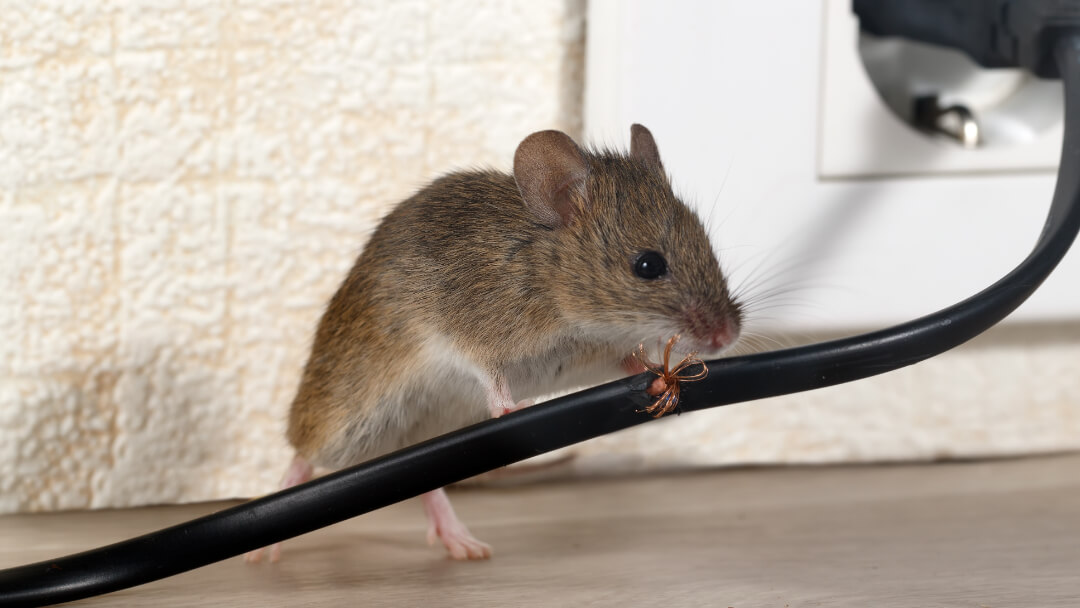If you have ever heard mysterious noises coming from your attic, you may be wondering, What Do Rats In The Attic Sound Like? Understanding the sounds that rats make is essential for identifying an infestation and taking necessary actions to eliminate the problem. Rats are notorious for invading homes, especially attics, and recognizing their distinctive noises can help you determine the severity of the situation.
In this article, we're going to delve into the various sounds that indicate a rat presence, the impact they can have on your living environment, and what steps to take if you suspect a rat infestation. By the end, you will be well-informed and ready to confront the issue head-on!

Understanding Rat Noises and Behavior
Rats make a variety of sounds that can alert homeowners to their presence. When trying to figure out What Do Rats In The Attic Sound Like, its important to consider the context of the noises. These intelligent rodents communicate not only through vocalizations but also through their movements and the sounds they produce while foraging.
Common Sounds Made by Rats
Here are some common noises you may hear if rats have invaded your attic:
- Squeaking: Rats often emit high-pitched squeaks, especially when they are excited, frightened, or communicating with other rats.
- Scratching: Sounds of scratching or scurrying indicate that rats are moving about, searching for food or navigating through tight spaces.
- Gnawing: The characteristic grinding noise of rats gnawing on wood or insulation can be alarming and indicates that they are damaging your home's structure.
- Thumping: Loud thumping sounds may occur when larger rats move around, often during nighttime when they are most active.
How to Identify the Sounds
Its not always easy to identify rat noises, especially if you live in a multi-story home where sounds can echo. Here are a few tips to help pinpoint the source of the noises:
- Time of Day: Rats are nocturnal, so sounds heard late at night or early morning are often more likely to be from rats.
- Location: Focus on areas of your home that offer easy access to food or shelter, such as attics, basements, and garages.
- Duration: Pay attention to how long the sounds last. Continuous noises may suggest a nesting area.

Impacts of a Rat Infestation
Beyond the creepy sounds that keep you awake at night, a rat infestation can lead to numerous problems:
- Health Risks: Rats are carriers of various diseases that can be transmitted to humans, such as hantavirus and leptospirosis.
- Structural Damage: Ongoing gnawing can cause significant damage to buildings, insulation, electrical wiring, and pipes.
- Food Contamination: As rats scavange for food, they can contaminate your pantries or stored grains with droppings and urine.

What To Do If You Hear Rats in Your Attic
If you suspect that you have a rat problem due to the noises coming from your attic, here are immediate actions to take:
- Investigate: Carefully inspect your attic, noting any signs of droppings, nesting materials, or gnaw marks.
- Seal Entry Points: Identify and seal any potential entry points where rats may enter your attic. This can include gaps in roofing, vents, or gaps around windows.
- Consider Traps: Setting up traps can help eliminate the problem. You can choose from humane traps to traditional snap traps. For effective methods, check out this link on the Victor Smart Kill Mouse Trap.
- Professional Help: If the situation is severe, it might be best to contact a pest control professional for safe and effective removal.

Preventing Future Rat Infestations
Once you have dealt with the immediate problem, taking preventive measures is crucial to ensure that rats do not return. Consider these tips:
- Maintain Cleanliness: Keep your home clean and free of food debris. Store food in airtight containers.
- Remove Clutter: Clutter in attics and basements can provide hiding spaces for rats.
- Regular Inspections: Conduct regular inspections of your home, especially the attic, to identify potential problems.
- Landscape Maintenance: Trim trees and shrubs near your homes exterior, as these can act as bridges for rats.
Conclusion
Knowing What Do Rats In The Attic Sound Like is crucial for detecting their presence and taking swift action. Whether its the squeaky sounds of communication or the gnawing of wood, being able to identify these noises will empower you to address potential infestations before they escalate. Always prioritize prevention and cleanliness in your home to maintain a rat-free environment.
Frequently Asked Questions
- How can I tell if I have a rat infestation? Look for signs such as droppings, gnawing marks, nests made of shredded materials, and noises at night.
- What are the signs that rats are in my attic? The most common signs include strange noises, droppings, and gnaw marks around entry points.
- Are rats harmful to my home? Yes, they can cause significant structural damage and pose health risks through disease transmission.
As an Amazon Associate, I earn from qualifying purchases.
